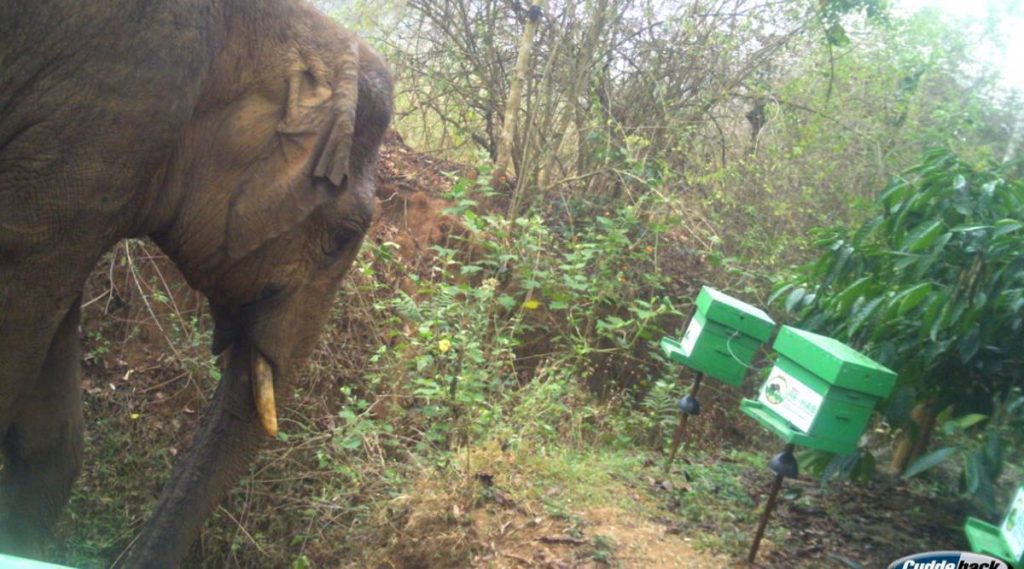Corbett Tiger Reserve in Uttarakhand has started beehive fencing to keep elephants away from populated areas and agricultural fields. This will reduce man-animal conflict as well as protect the crops from elephants. Additionally, it will provide an alternative income to the local people and increased their cross-pollinated crops’ production.
In this bio-fencing initiative, a portion of the forest will be encircled with a trip wire laden with beehives. It will stop the jumbo from entering the fields and populated areas.
Indian Masterminds interacted with 2004-batch IFS officer and Field Director of Corbett Tiger Reserve, Dr. Dheeraj Pandey, to get details about this initiative.

BEEHIVE FENCING
The forest department has identified 50 kms of fringe areas where elephants normally venture in. The National Park is home to about 12 thousand elephants and man-elephant incidents happen very often. Before every harvest season, thousand of jumbo enter the fields and damage crops. But, this initiative will reduce it and farmers will get extra income, too.
Mr. Pandey said, “Generally, solar fencing is done, but at times, it is not that effective. So, we have started placing beehives strategically, using a trip wire for its placement. We have made a model and prototype of this.”
For this, the local people are being especially trained, thus, providing them with an alternative employment. This will also increase pollinator’s species. “Bees are reducing now, and due to less cross pollination, agriculture produce will also decrease. So, bees are really important for us. Hence, this initiative will bring great benefits,” said Dr Pandey.
TRAINING
The park officials are in touch with several universities for proper training in apiculture, one of these is G.B. Pant University of Agriculture & Technology at Udhampur Nagar in Uttarakhand. This university has its own Beekeeping Research and Training Center (BKRTC).
“We will get the training done from there. This will be a residential training on how to maintain the beehives. For selecting the people who will undergo training, we have identified eight eco development committees (EDC). After training them, we will place beehives in the fringe areas and they will maintain them. The first phase training has been completed and the second phase is going on,” Dr. Pandey informed.
3 BIG BENEFITS
The initiative has three big benefits. First, elephants will be away from fields. Second, locals will get alternative employment and income. Third, pollinators will increase.
As elephants do not like the humming sound of the bee at all and fears its sting, they will not go near the beehive fencing. This fencing will also provide alternative employment to the locals who have been entrusted with the responsibility to maintain the hives. The honey and other byproducts like bee wax, can be sold and people will get an extra income.
At the same time, pollinators will increase as bees are very good pollinators, and due to the presence of bees, cross pollinated crops production will increase in those areas. Hence, besides earning extra, the local people will also be getting a good produce. An ideal situation for all. The villagers will benefit, the elephants will be protected, and man-animal conflicts will get minimised.

































